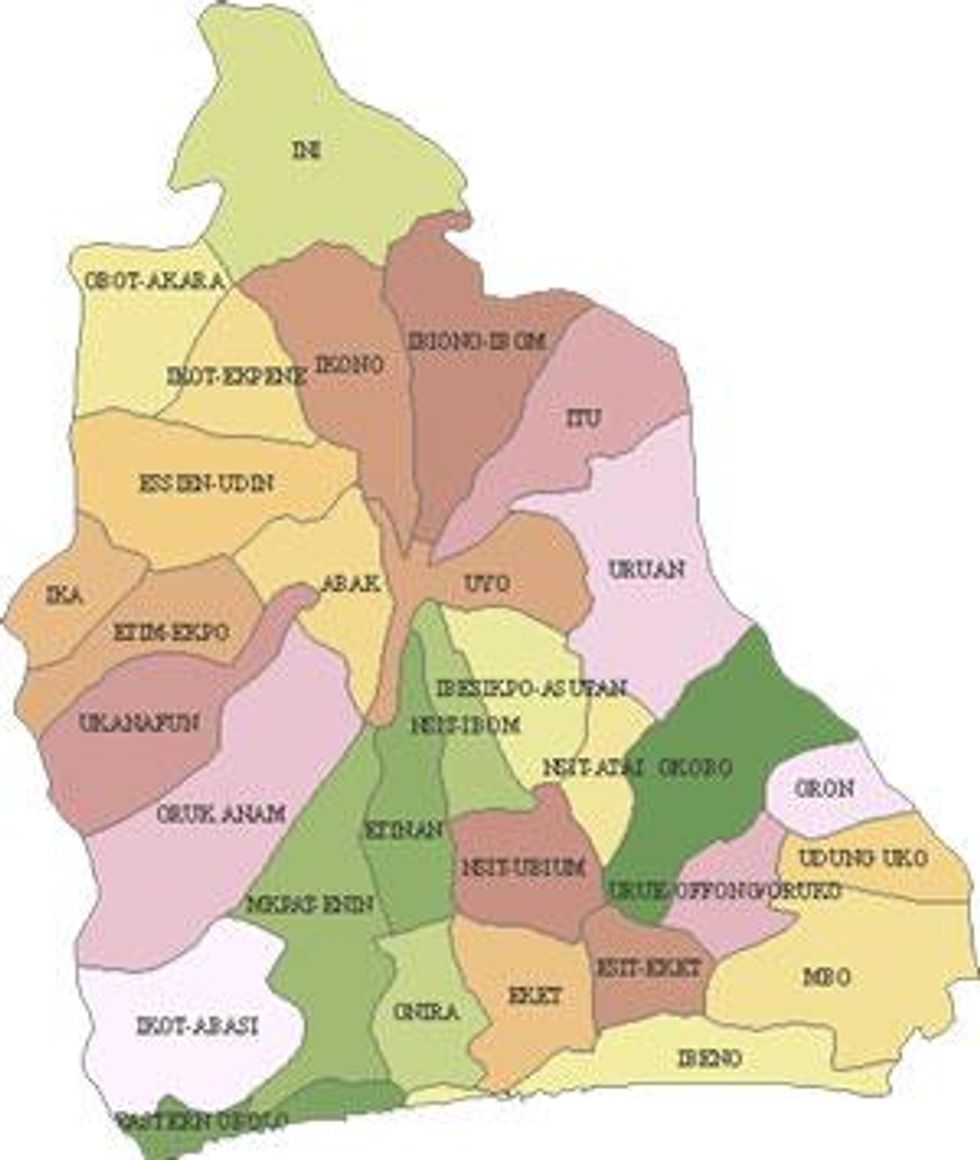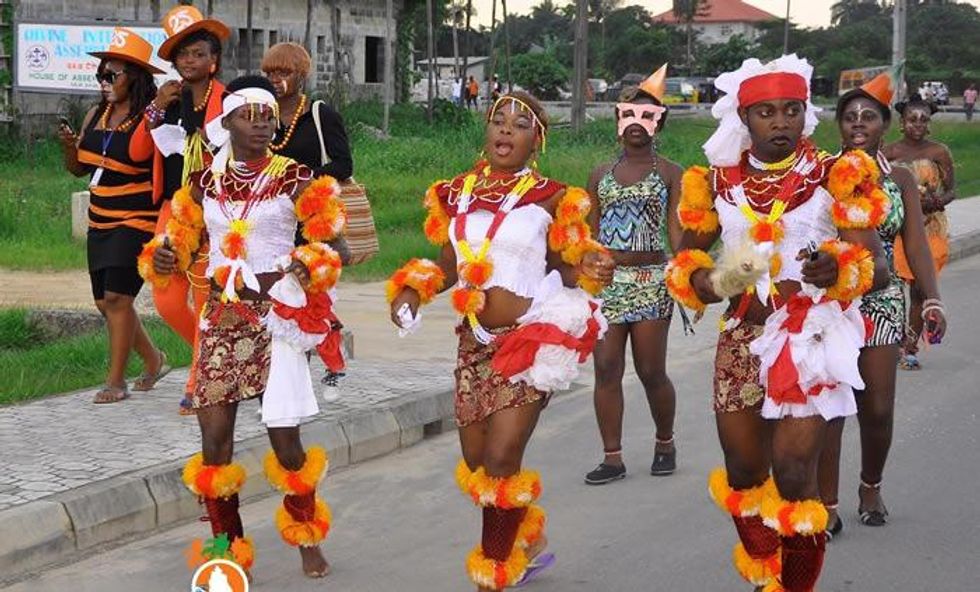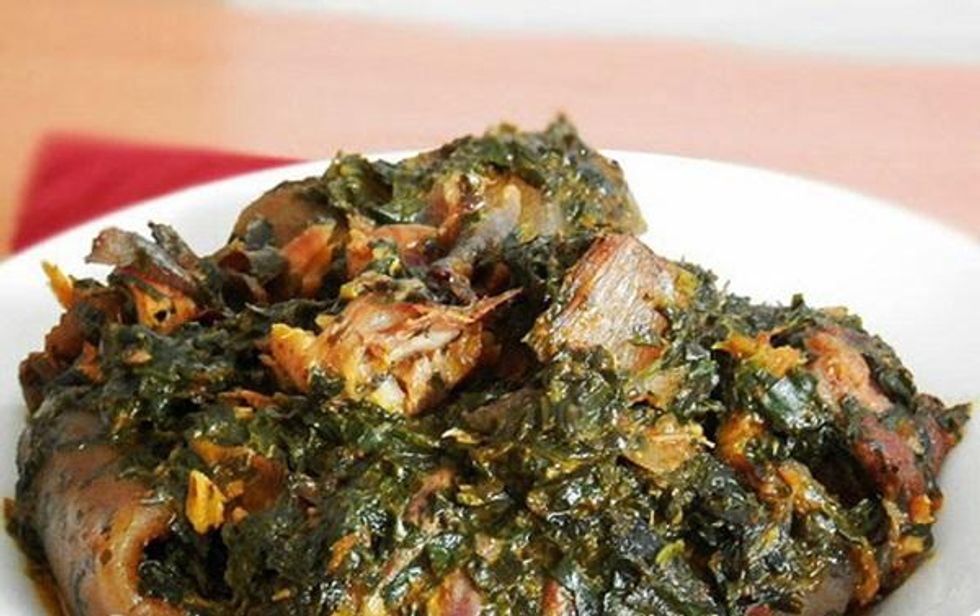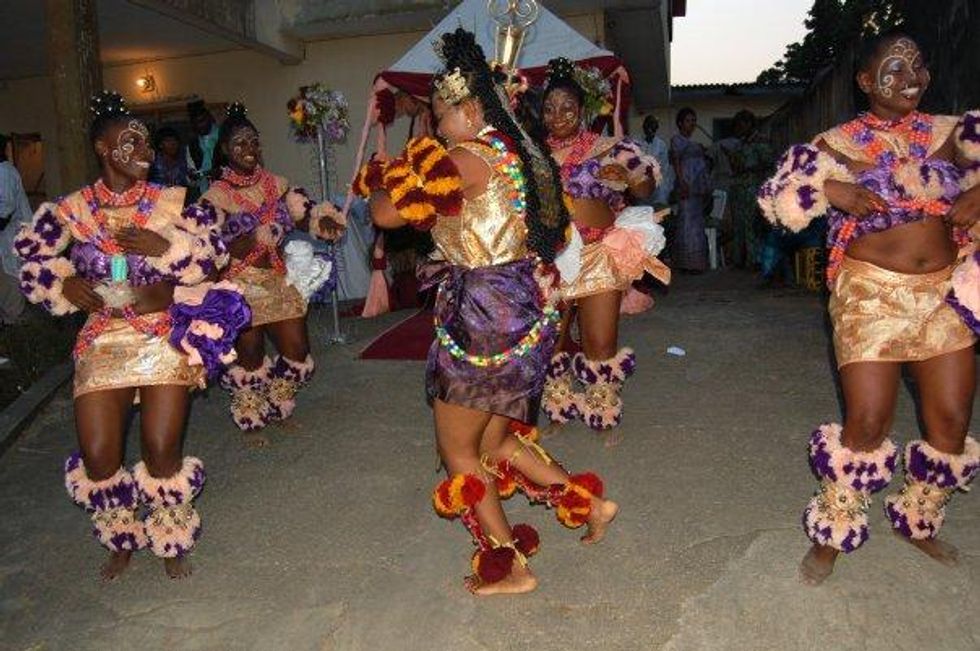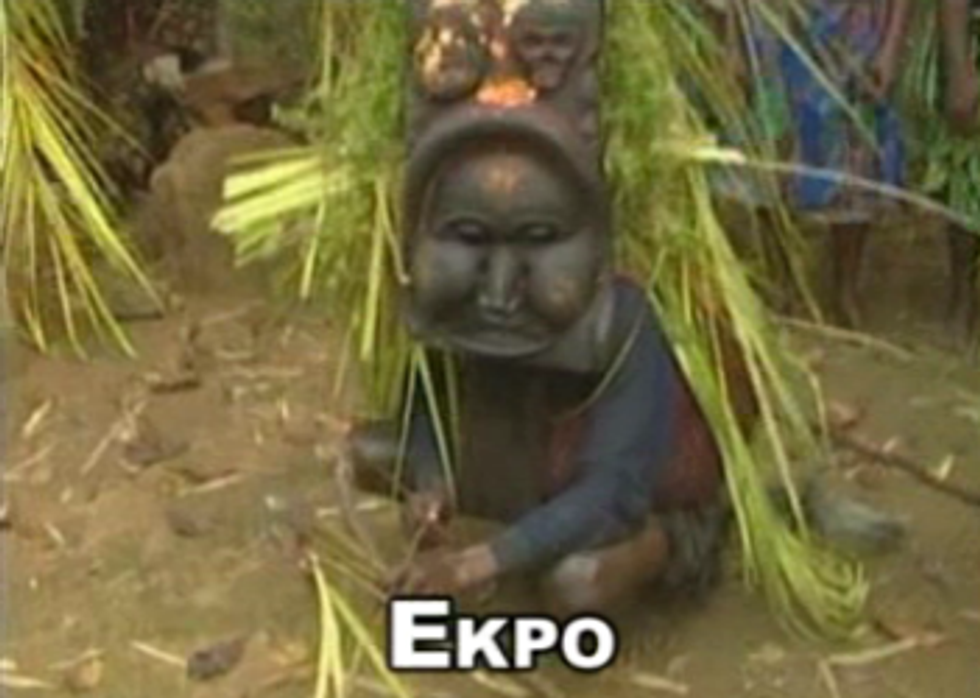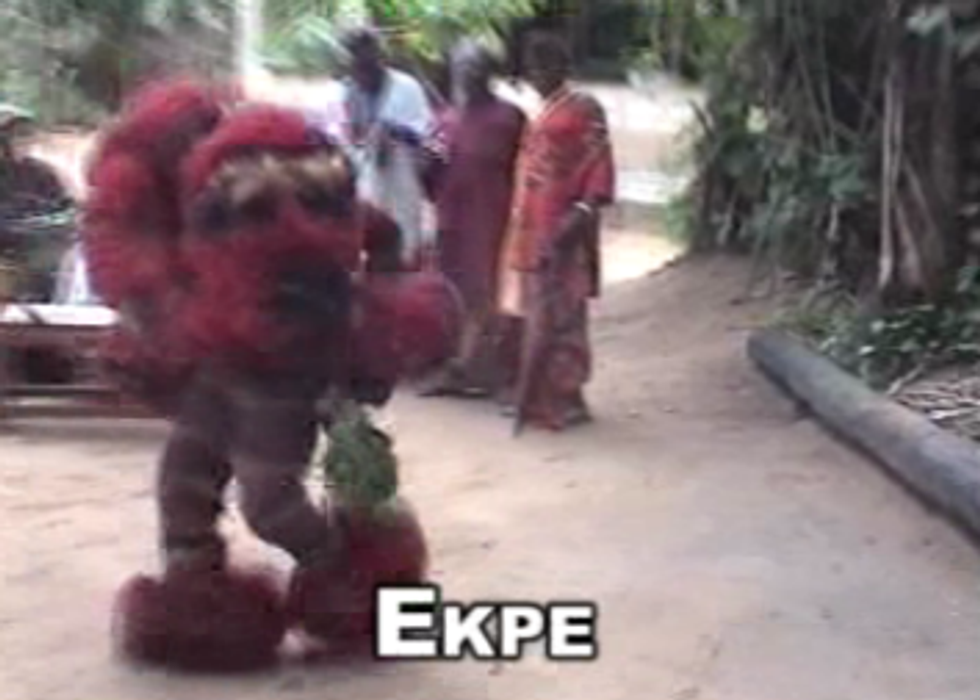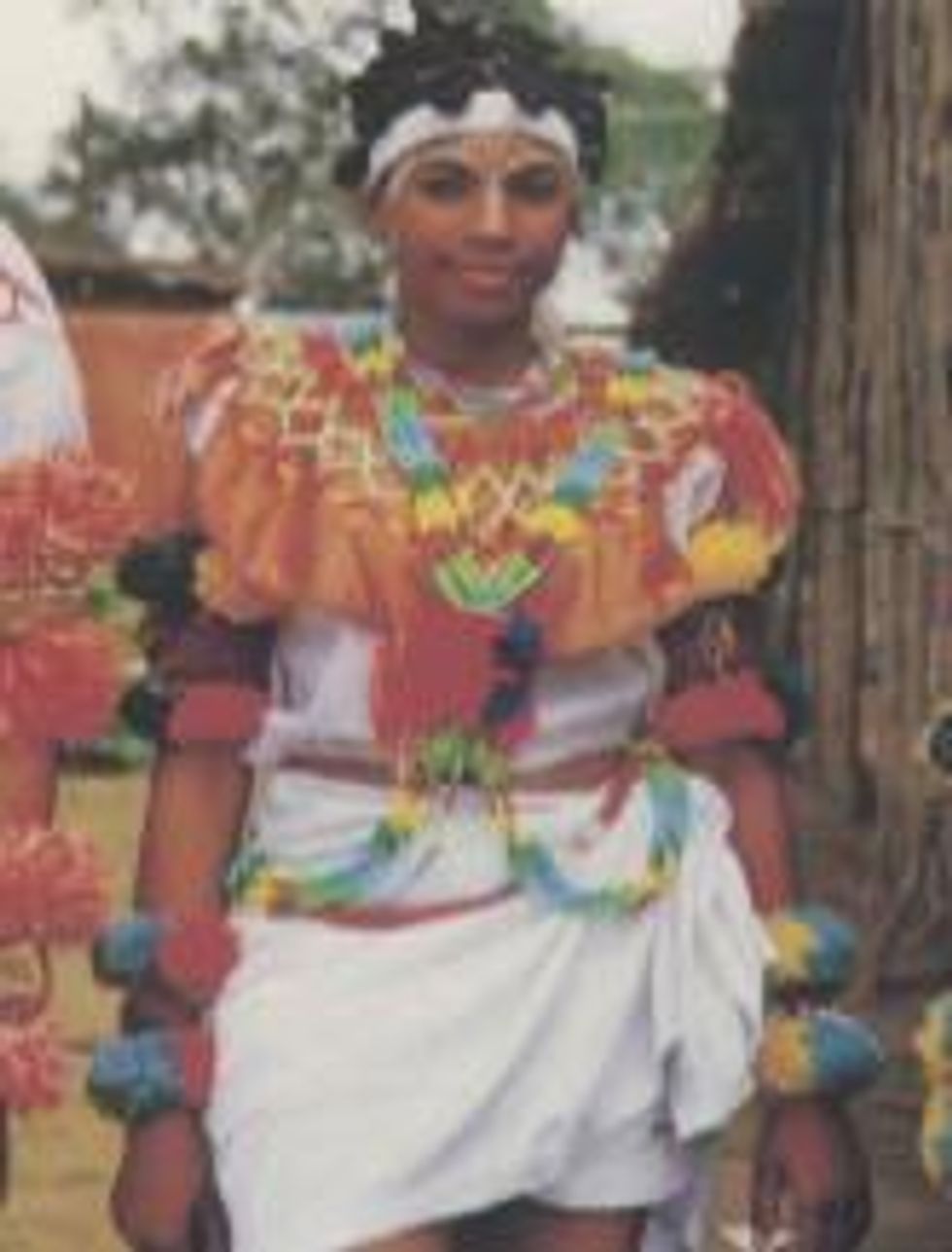It is that time of the year where we jot down our "New Year Resolutions" for 2018. Sounds cliché, right? Many individuals write their new year plans and goals hoping that they could commit to it throughout the year. Well, I decided to write down some of my goals and plans, FOR THE FIRST TIME!
That is strange for a young college student, but it is worth the try. One of my goals is to learn the interesting language and pronunciation of my culture. Just to provide a small background, I come from the Akwa Ibom state culture, located in the Southeastern part of Nigeria. The music videos and film that I watched on New Year's Day with my family inspired me to share five interesting facts about my culture. This won't be a boring history lesson, so, let's get into it!!!
1. Akwa Ibom State is located in the South-South region of Nigeria and its famous capital is "Uyo," which holds a significant meaning of "The Land of Promise." for it natural resources of crude oil, iron, gold, clay, and limestone that is prominent to them. It was established from the origin of Calabar, Cross River State in September 23, 1987 (YAY! for 34 years and counting or as my native people would say "AKWA IBOM ISONGO!")
2. Since I want to take the time and learn my culture’s language, the Akwa Ibom people interestingly speaks five different dialects: Ibibio, Annang, Oron, Eket, and Obolo. The Ibibio language is the common language that my native people speak. (So, I can technically speak 5 Different languages, HOW cool is that?
3. Personally, I come from two different tribes from my family. Now, bear with me on these pronunciations! My mother comes from the local government area of, Nsit Ibom. It comprised of two clans, such as the Asang and Mbiaso. On the other hand, my father comes from the local government area of Nsit Ubium.
It is comprised of two clans, such as Nsit and Ubium (literally)! I honor my father village, Edem Idem Okot-Ok pot because though he did not have much growing up, they are well known for their hospitality and wisdom that are passed down for generations. The clans from my family are appointed an elder chairman, who is responsible for enhancing development in the villages.
4. FOOD TIME! Akwa Ibom state is “highly” gifted in culinary culture as it is reputed for salivating variety of standard cuisines. Because the state lies in a tropical rainforest zones, vegetables, seafood, and domestic animals are resources that dominate their traditional diets. Akwa Ibom is well known for their mouthwatering, irresistible soups and fufu (a wheat grain or flour that is boiled in hot water).
Here are some dishes to try is YOU ever visit my home: Edikang Ikong, Afang, Ekpang Nkukwo, Abak, Afere Ikon, Otong Afere Atike, Anyan Ekpang, and Pepper Soup with white rice. One special ingredient that an Akwa Ibomite cannot do without is MEAT! My favorite traditional dish is coconut rice. The ingredients to prepare this meal are natural coconut water or milk (whichever option you prefer), goat meat, smoked fish, shrimp, prawns, pepper, salt, and crayfish. (As I am writing this, I FEEL EVEN HUNGRY NOW!)
5. Last, but not least, I cannot forget our cultural dances! Our culture features folk songs, Ikon (xylophone), Uta (guard horns), Ekpo/Ekpe Masquerades, and many more.
Some of the famous dances are Ekombi (an Efik traditional dance among our sister state, Calabar, Cross River state, which shows a woman’s grace, beauty and femininity), Asian Ubo Ikpa (means “the pride of a maiden, it shows the youthful innocence and purity in their beauty), Oko (is the male dance that is linked tow “war” because of it ferocious displays of machetes and firing themselves), Nkerebe (means “looking for a husband” and it is performed once a year by young girls who prepare for their ceremony), Asian Mbre Iban, Ndok Ufok Ebe, and Ebre!


